Volunteer for Rhythm & Brews! Hear Good Music and Get Cool Stuff!

Join MountainTrue’s Recycling Team on Main St. during the Rhythm & Brews Concert Series in downtown Hendersonville this summer and fall to reduce waste and encourage recycling. Volunteers will be rewarded with an R&B volunteer t-shirt, a voucher for a free beverage, a koozie and a water bottle! Help educate attendees and monitor the waste stations.
Upcoming Concerts:
July 15: Abby Bryant & The Echoes with opener Andrew Thelston Band
August 19: Jamie McLean Band with opener Hustle Souls.
September 16: Mike and the Moonpies with opener Kenny George Band.
October 21: The Broadcast with opener TBD.
2 Shifts: 5:30 – 7:30 p.m. & 7:30 – 9:30 p.m.
Volunteers needed: 4 per shift, 8 total
To sign up: https://signup.com/go/eRCebTq
Working to be Plastic Free Program Endorsed by Hendersonville City Council
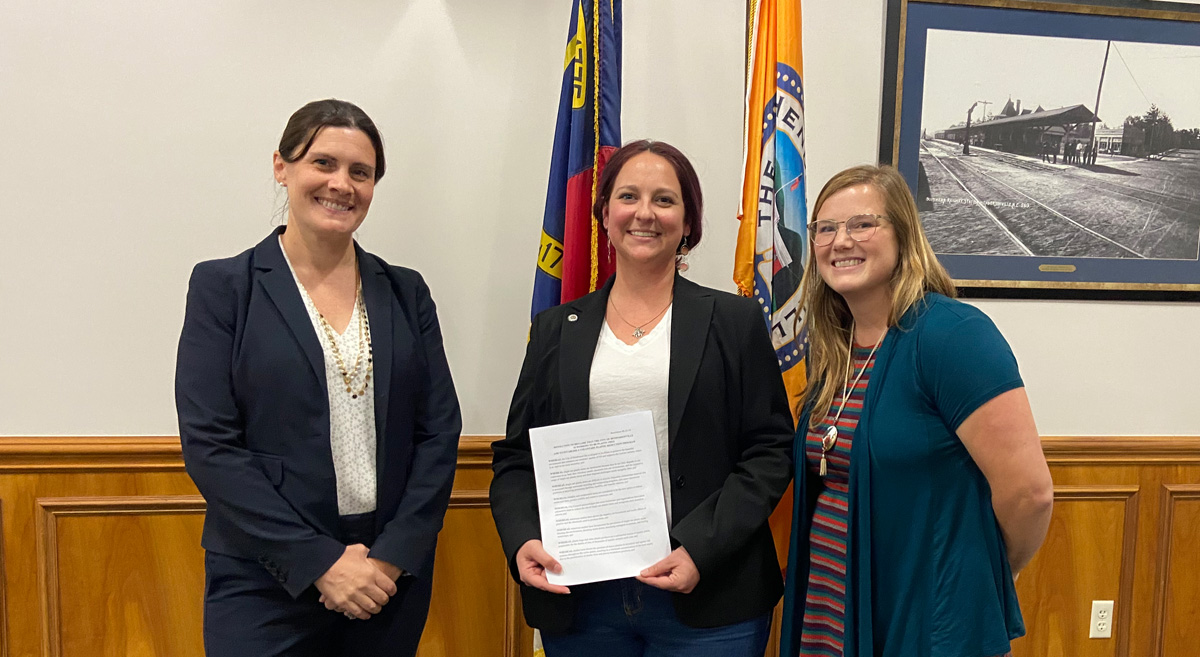
L to R: Beth Stang, chair of Hendersonville’s ESB. Lyndsey Simpson, H’ville City Councilwoman, and Christine Wittmeier, chair of MountainTrue’s Recycling Team, hold a July 1st proclamation endorsing the Working to Be Plastic Free program.
On July 1, Hendersonville City Council approved a proclamation supporting Working to be Plastic Free — a plastic reduction program created by MountainTrue and the Hendersonville Environmental Sustainability Board. Hendersonville Mayor Barbara Volk signed the pledge and has encouraged staff to reduce the city’s use of plastic.
Many of the local merchants and restaurants participated in a plastics-use survey earlier in the year. Now, we’re encouraging them to sign the pledge and begin working to eliminate single-use plastics, such as plastic bags, straws, cutlery, and take-out containers. Most of these plastics are not recyclable and end up in landfills or littering our rivers and streams.
MountainTrue is ready to help businesses find sustainable packaging alternatives, and participants will be recognized in press releases, newsletters, social media, and a webpage promoting the program. To get more information and sign the pledge, visit our webpage or contact MountainTrue’s Interim Southern Regional Director, Katie Breckheimer, at srogray@mountaintrue.org.
Congratulations to Our Broad River Race Winners: Jordan Jackson and Marc Stowe
 Broad River Race winners Jordan Jackson and Marc Stowe accept the trophy from David Caldwell, the Broad Riverkeeper.
Broad River Race winners Jordan Jackson and Marc Stowe accept the trophy from David Caldwell, the Broad Riverkeeper.
Our Third Annual Broad River Race was postponed when a thunderstorm moved across the area last Saturday, July 12. A day later, the race flag dropped, and the paddlers sped down the river. Four and a half miles and an hour later, Jordan Jackson and Marc Stowe were the first to cross the finish line in a tandem canoe to take home our race trophy, Betsy the Turtle. Annie Keith and her son David Caldwell, our Broad Riverkeeper, were hot on their trail. It was great to see so many people enjoying the cool waters of the Broad River, and we look forward to seeing who wins next year.
App State Eco-Tox Team Collects Fish Tissue Samples From the Broad River
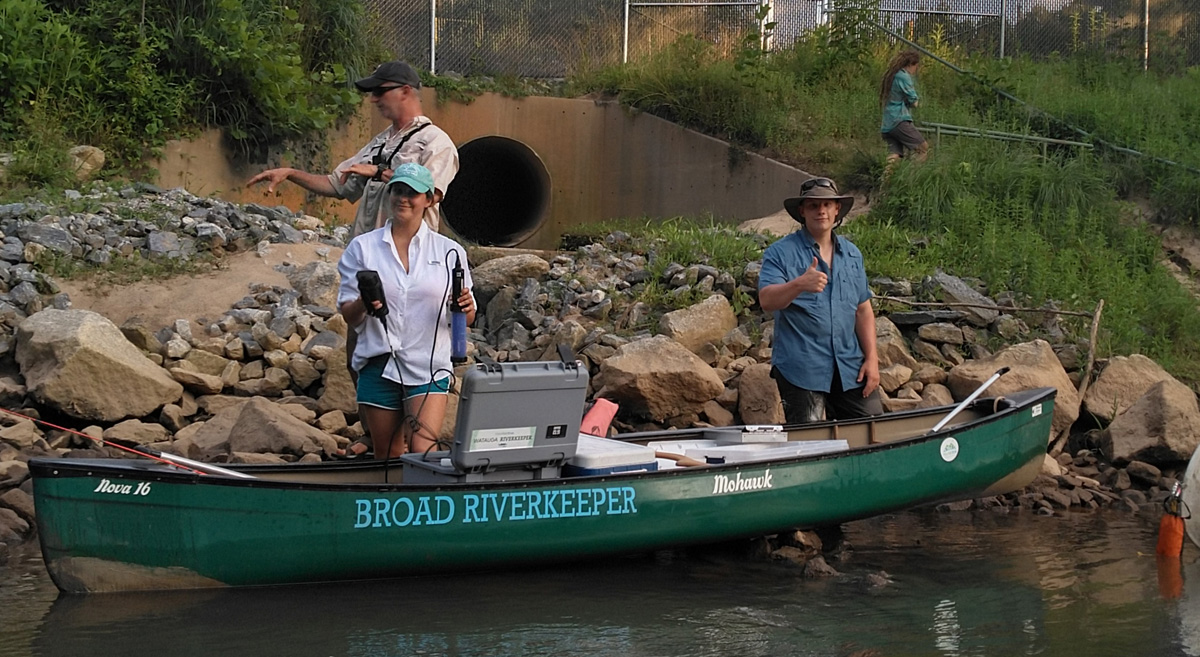
The Appalachian State Eco-toxicology Team returned to the Broad River to collect more water, sediment and fish tissue samples for an ongoing study of the bio-accumulation of heavy metals in fish. The team sampled upstream and downstream of two industrial sites with permits to discharge pollutants into the river. MountainTrue will use the results to determine if we need fish consumption advisories for the affected sections of the waterway. Special thanks to our High Country Water Quality Administrator, Hannah Woodburn, and Appalachian State’s Dr. Shea Tuberty for leading this fantastic project.
ICYMI: Broad River Spring Sweep Collects Over 100 lbs of Litter
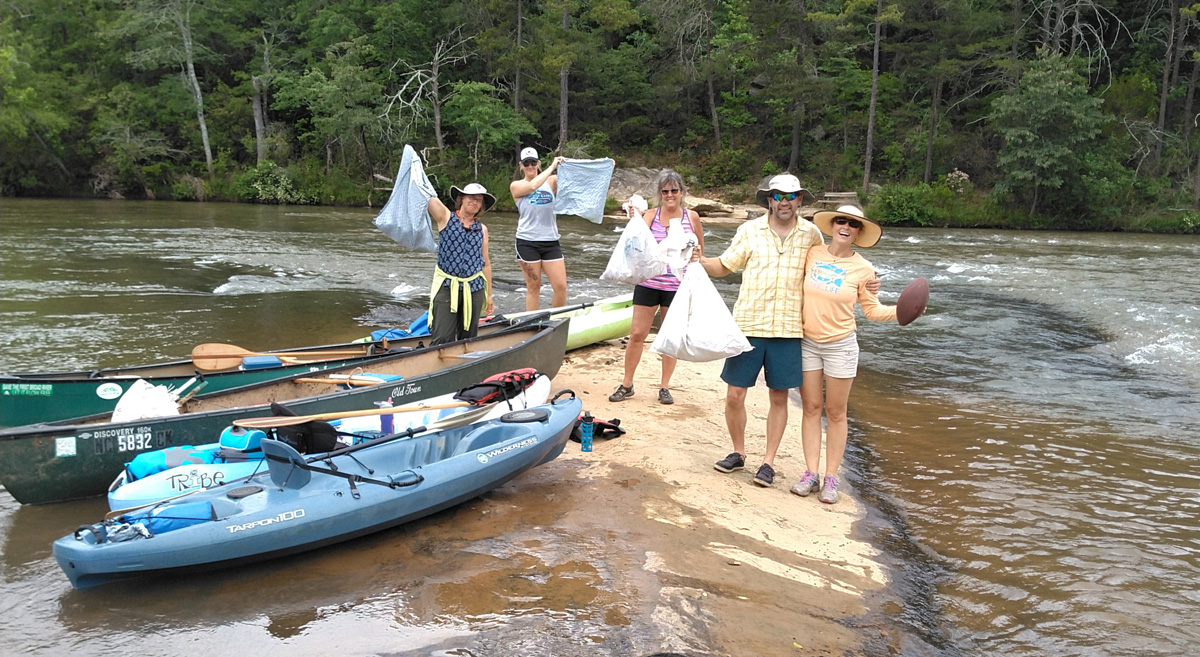
We had a small crew for this year’s Annual Broad River Spring Sweep on May 29, but we made a big impact by collecting over 100 lbs of litter (including a football) from the Broad River. It was also inspiring to see so many folks cooling off in the water and enjoying the river at the Greenway canoe access.







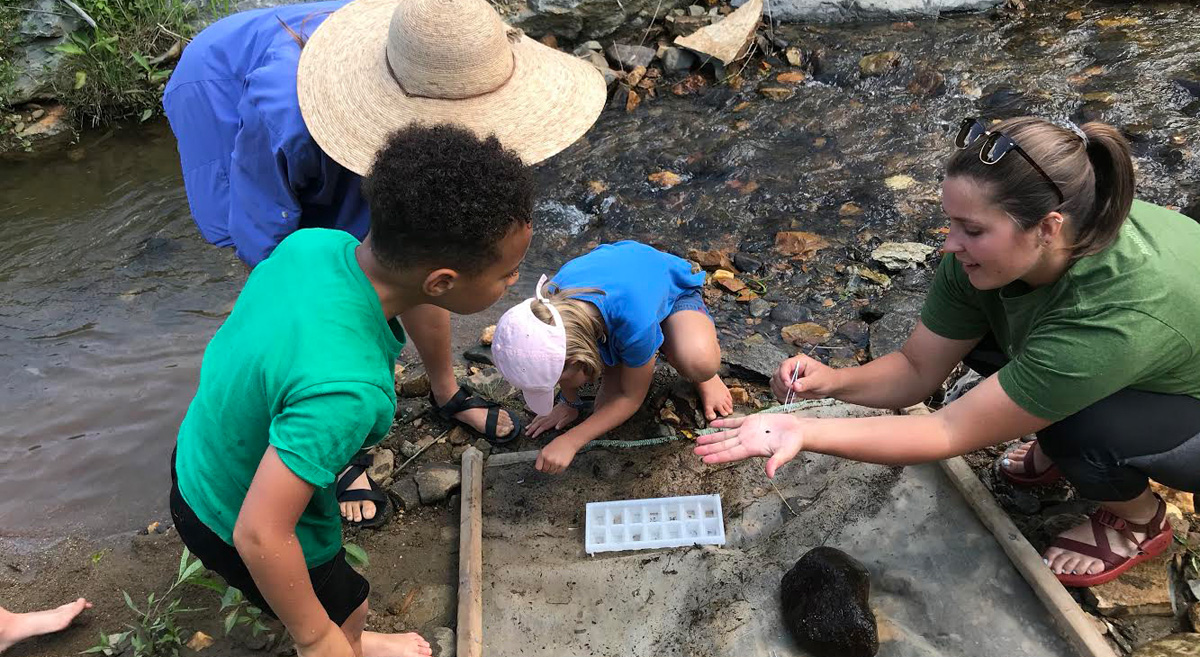
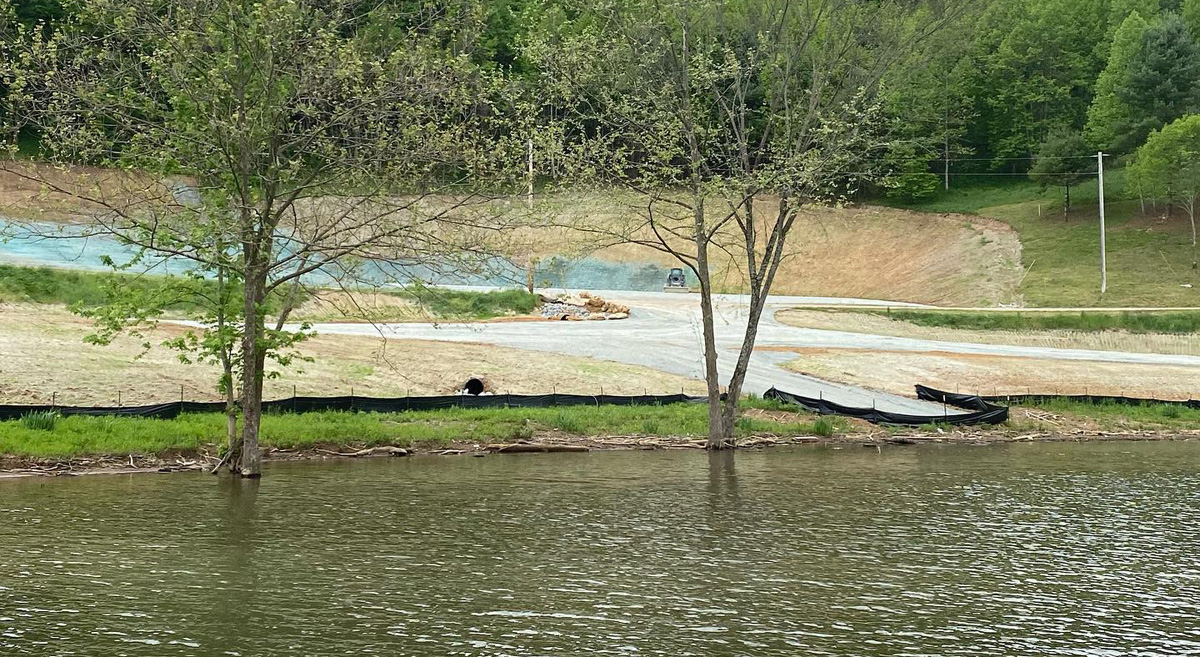
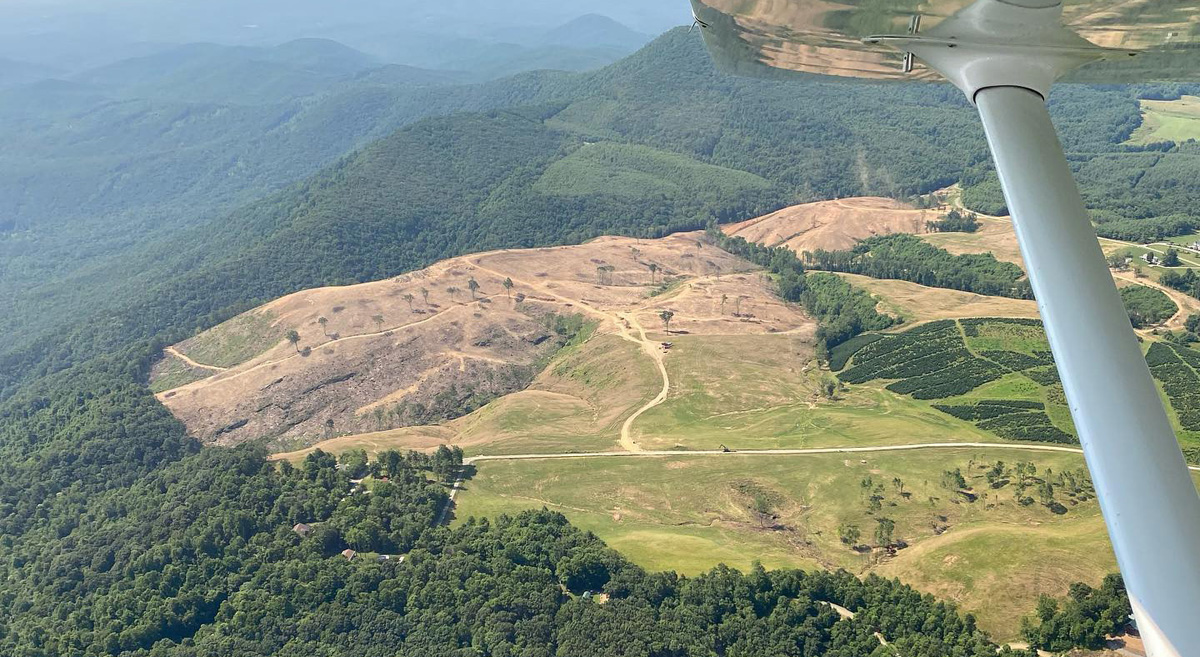


 Broad River Race winners Jordan Jackson and Marc Stowe accept the trophy from David Caldwell, the Broad Riverkeeper.
Broad River Race winners Jordan Jackson and Marc Stowe accept the trophy from David Caldwell, the Broad Riverkeeper.

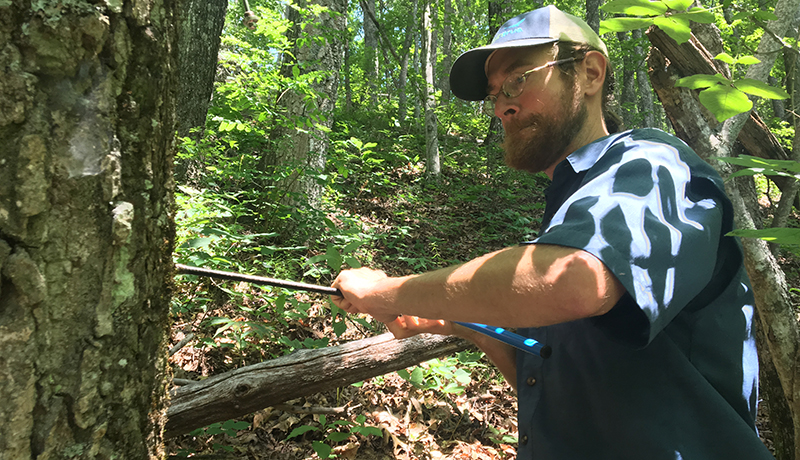 MountainTrue’s Public Lands Field Biologist Josh Kelly documents the age of a 200-year-old tree in the Nantahala National Forest.
MountainTrue’s Public Lands Field Biologist Josh Kelly documents the age of a 200-year-old tree in the Nantahala National Forest.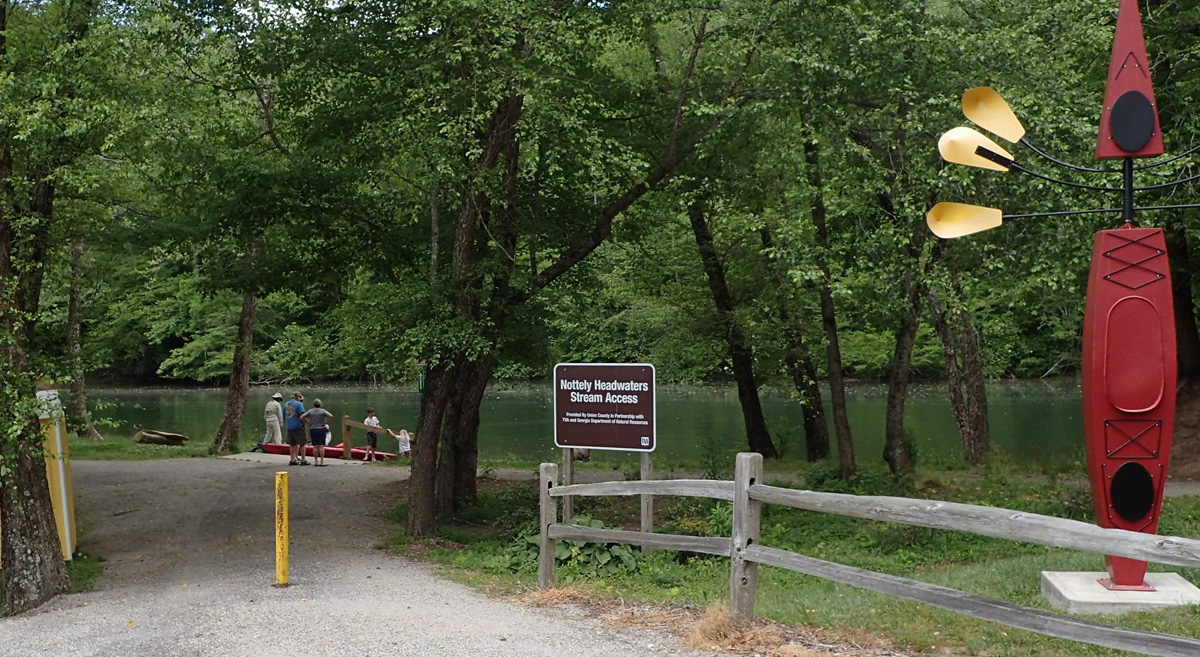
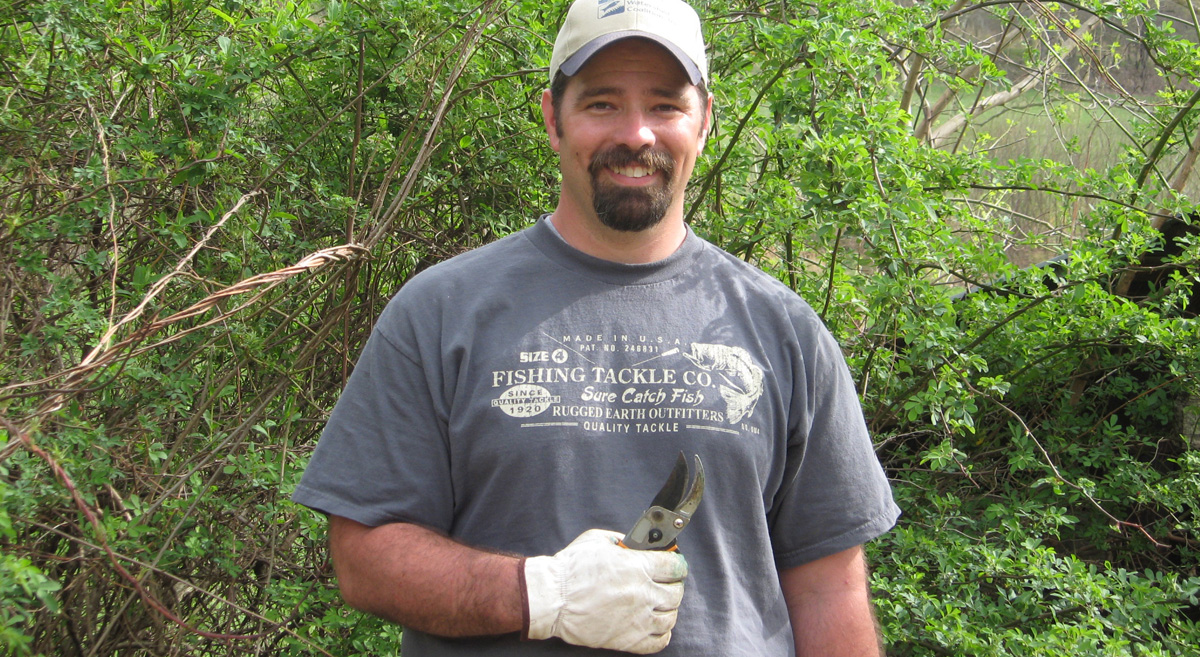

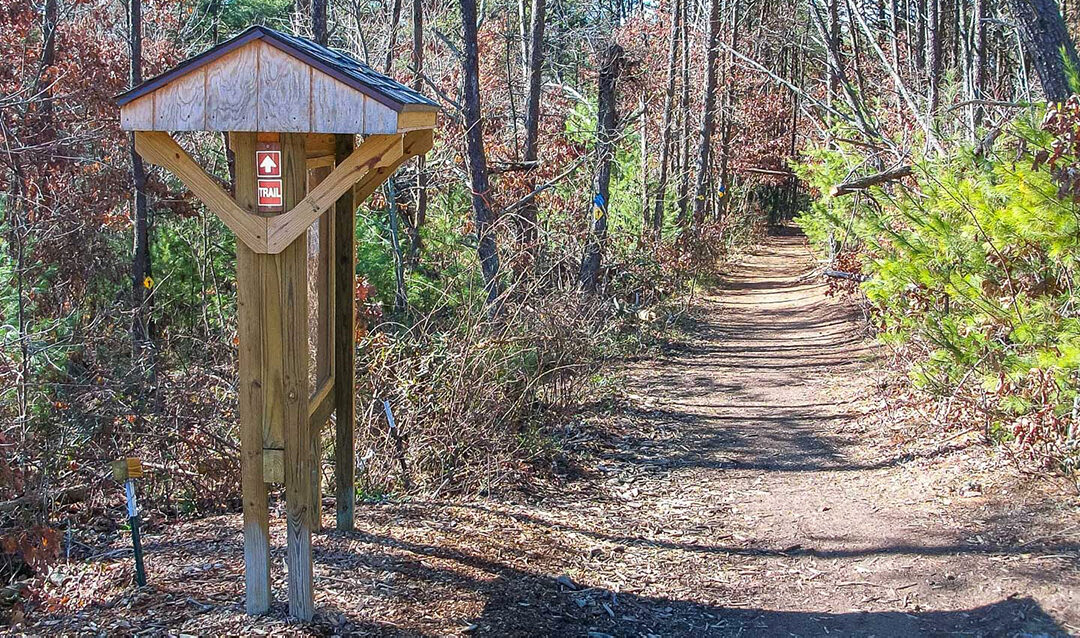
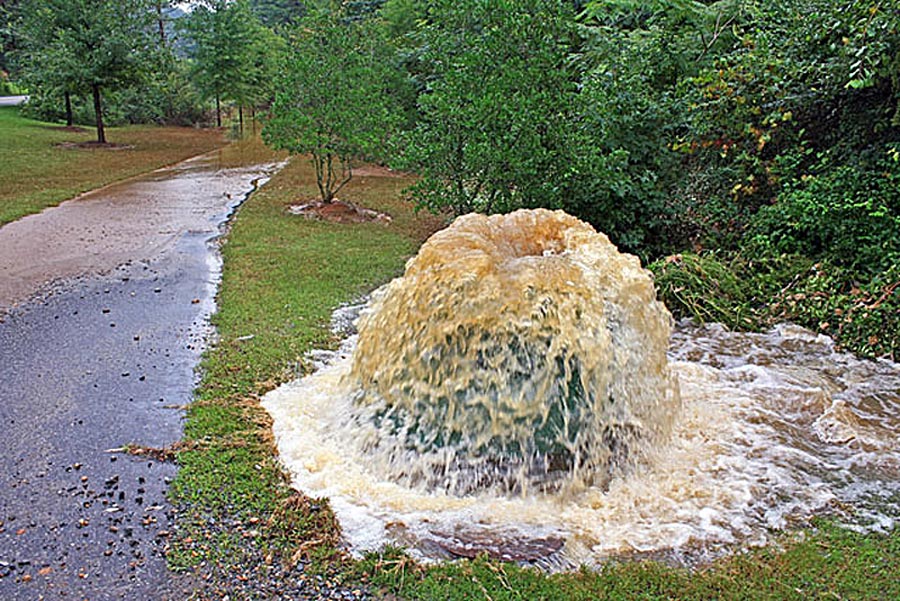



 Join us for a High Country sustainability discussion with George Santucci. You may know George as the long-time Director of the New River Conservancy. George has brought his decades of environmental experience to his new role as Sustainability and Special Projects Director for the Town of Boone.
Join us for a High Country sustainability discussion with George Santucci. You may know George as the long-time Director of the New River Conservancy. George has brought his decades of environmental experience to his new role as Sustainability and Special Projects Director for the Town of Boone.
 Photo By Moss Brennan
Photo By Moss Brennan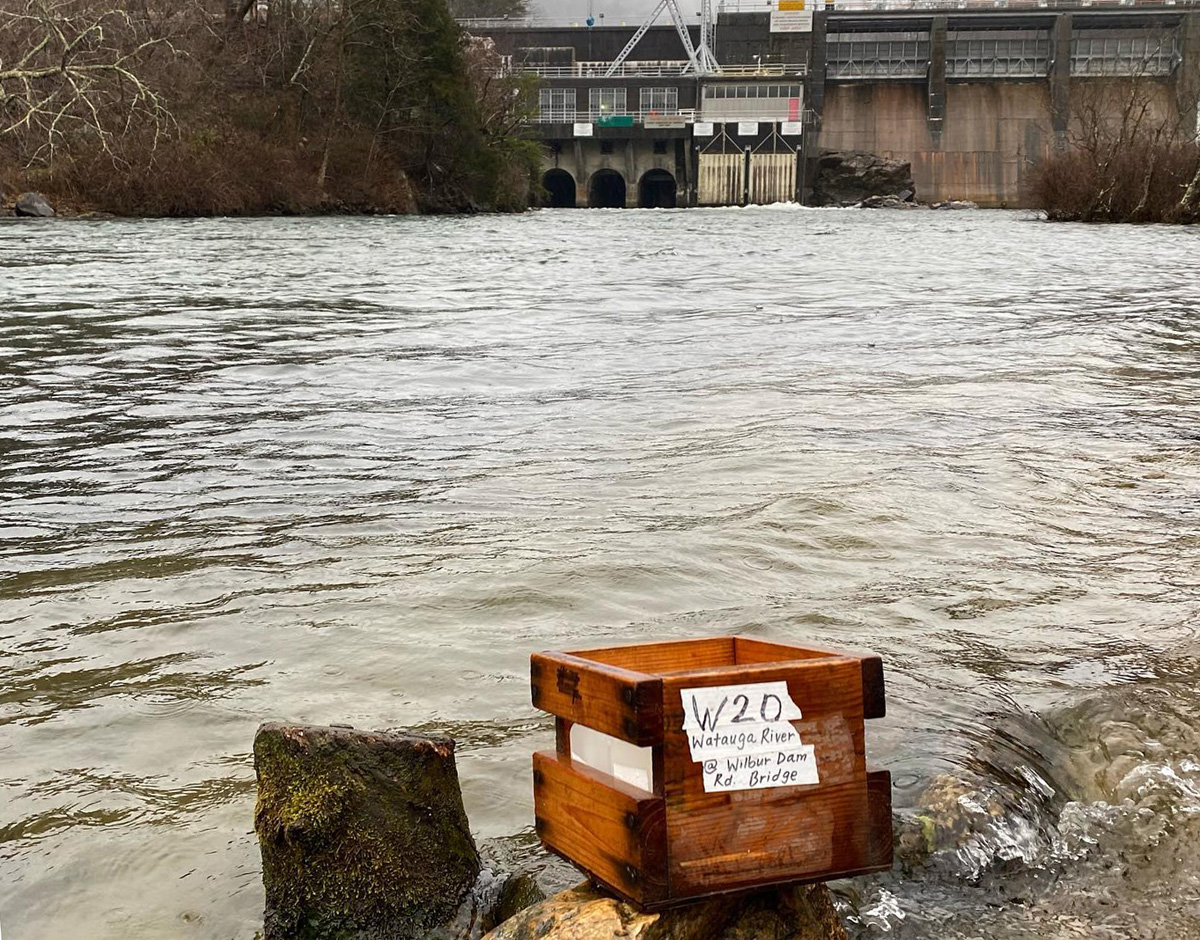 Volunteer Water Information Network (VWIN) Sampling at the Wilbur Dam on the Watauga River.
Volunteer Water Information Network (VWIN) Sampling at the Wilbur Dam on the Watauga River.
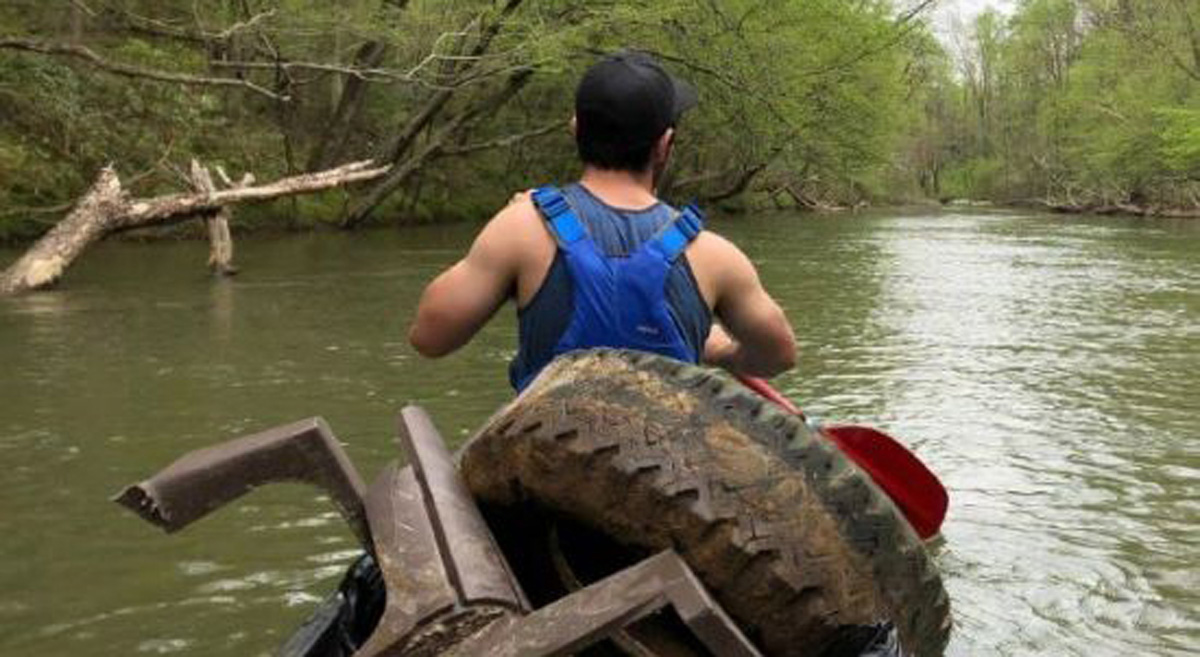
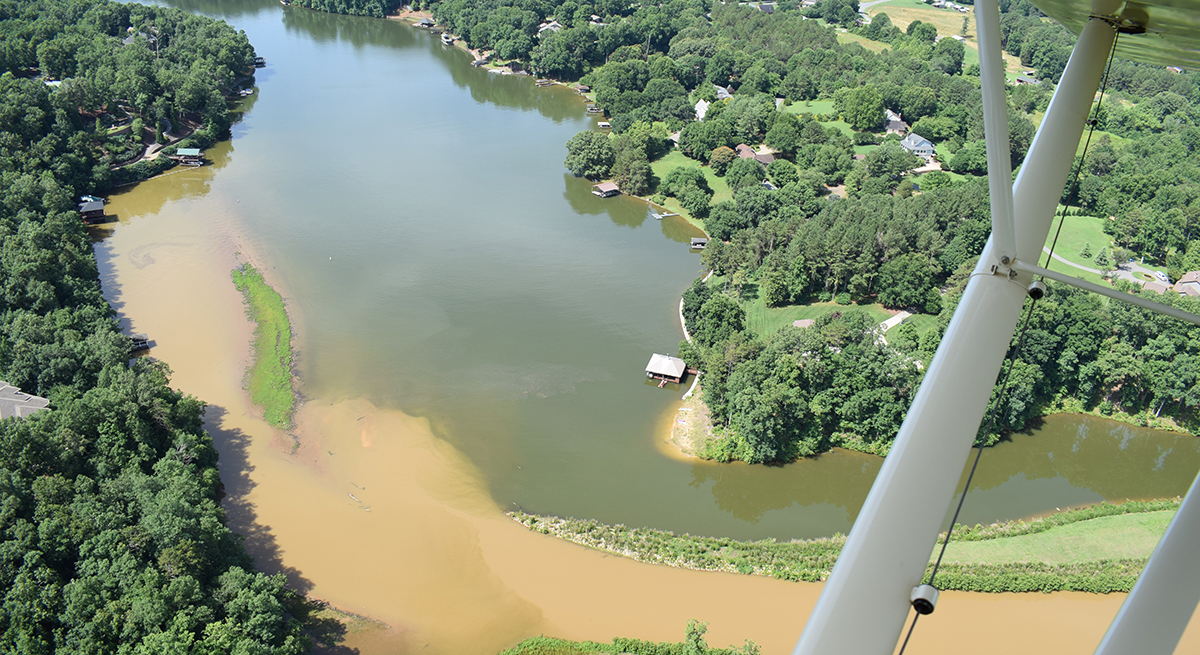
 Broad Riverkeeper David Caldwell (left) with SouthWings pilot Peter Stauble (right) discussing their flight plan before takeoff.
Broad Riverkeeper David Caldwell (left) with SouthWings pilot Peter Stauble (right) discussing their flight plan before takeoff.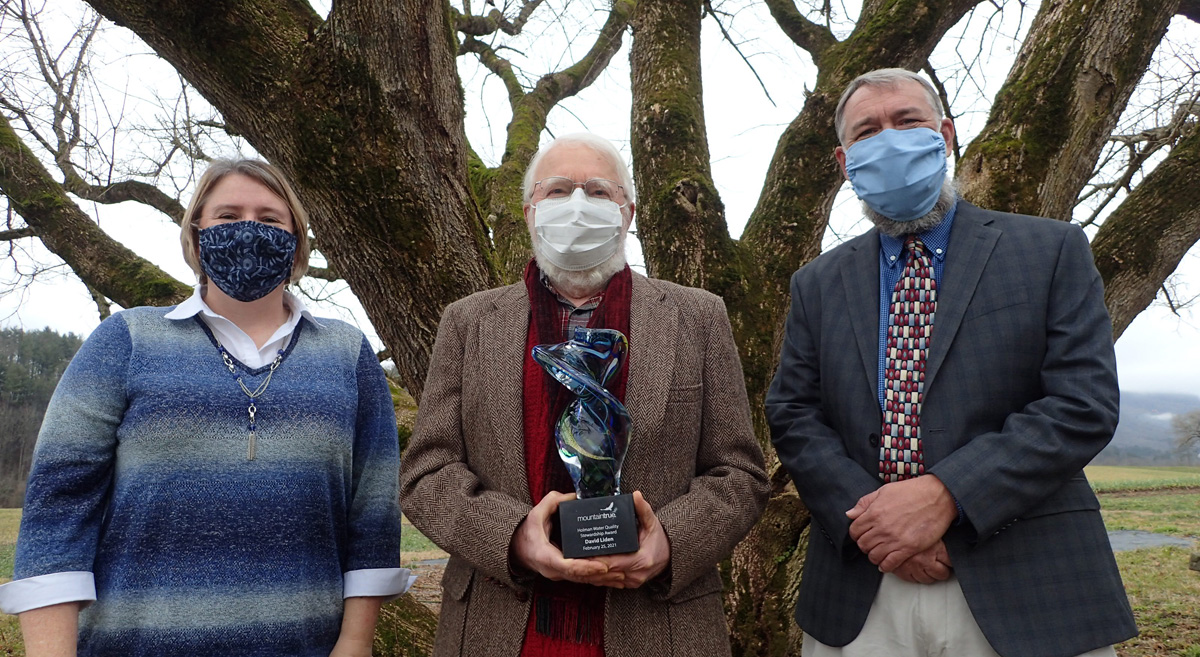 David Liden (center) received the 2021 Holman Water Quality Stewardship Award from MountainTrue Western Regional Director Callie Moore (left) and Hiwassee Watershed Advisory Council Chairperson Jason Chambers (right) at the John C. Campbell Folk School gardens before the online event.
David Liden (center) received the 2021 Holman Water Quality Stewardship Award from MountainTrue Western Regional Director Callie Moore (left) and Hiwassee Watershed Advisory Council Chairperson Jason Chambers (right) at the John C. Campbell Folk School gardens before the online event.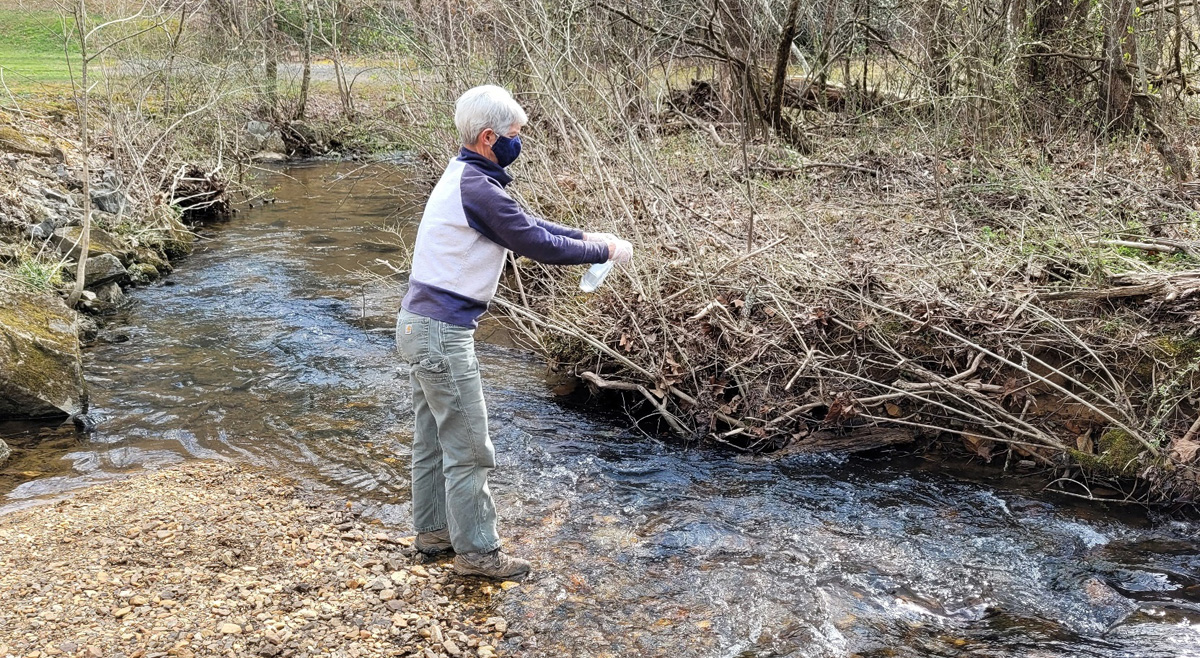
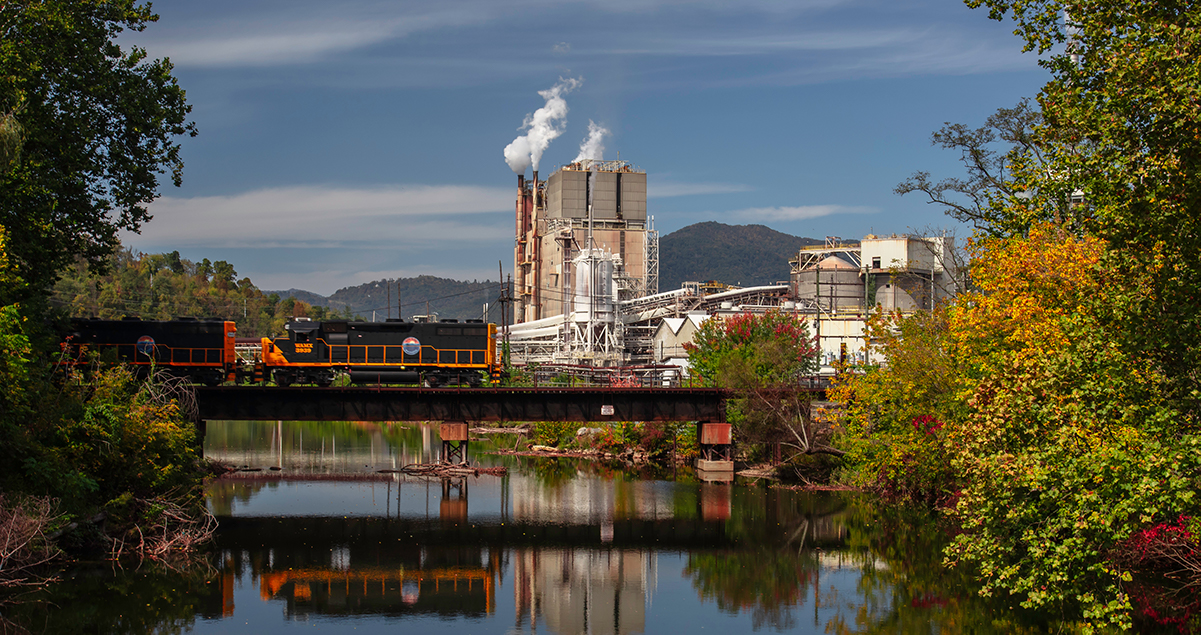
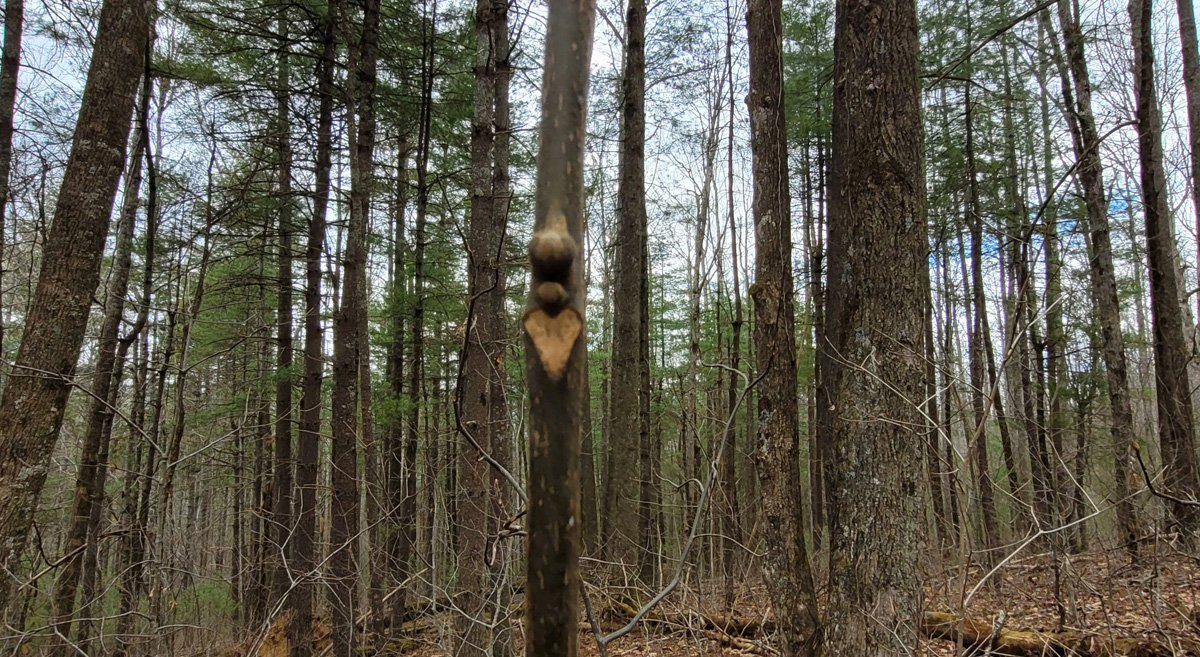 A heart-shaped leaf scar on a young hickory tree. Leaf scars can help you identify native trees in winter.
A heart-shaped leaf scar on a young hickory tree. Leaf scars can help you identify native trees in winter.